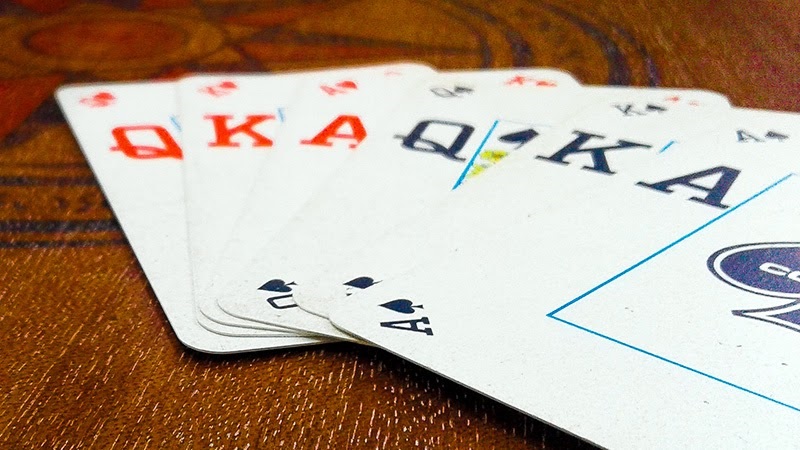Poker is a card game popular all over the world in which players gamble on the superior value of the card combination (“hand”) in their possession, by placing a bet into a central pot. The winner of this game is the one who holds the hand with the highest value according to an established hand rankings hierarchy, or otherwise the player who remains “in the hand” after all others have folded (the player who makes an uncalled bet.).
There are many variations of poker, all following a similar pattern of play. According to the variant, hands may be formed using cards which are concealed from others, or from a combination of community and concealed cards. If you are a fan of poker games, you can try online poker in any authorised casino as well as you can play online games like free pokies 5 Dragons there.
How Is Poker Played?
When played casually, the right to deal a hand typically rotates between the players and this is marked by a token called a “buck” or “dealer” button. In most casinos, a professional dealer handles the cards for each game, but the button (which is typically a white plastic disk) is rotated clockwise between the players indicating a nominal dealer to establish the betting order.
One, two or more players are required to make forced bets in order to create an initial stake for which the poker players will contest. The dealer shuffles the cards, cuts, and deals the appropriate number of cards to the players one at a time. Cards may be dealt either face-up or face-down, depending on the type of game of poker that is being played. After the first deal, the first of what may be several betting rounds begins. Between rounds, the players’ hands develop in some way, often by being dealt additional cards or replacing cards previously dealt. At the end of each round, all bets are gathered into the central pot.
At any time during a betting round, if a player makes a bet, opponents are required to fold, call or raise. If one player bets and no opponents choose to call (match) the bet, the hand ends immediately, the bettor is awarded the pot, no cards are required to be shown, and the next hand begins. This possibility of winning a pot without showing a hand makes bluffing possible. Bluffing is a primary feature of poker, one that distinguishes it from other vying games and from other games that make use of poker hand rankings.
At the end of the last betting round, if more than one player remains, there is a showdown, in which the players reveal their previously hidden cards and evaluate their hands. The player with the best hand according to the poker variant being played wins the pot and live dealer roulette.

Four Simple Rules to Follow When Playing Poker
- Be patient – In any game of poker, patience is very important. The more patience you have, the more money you’ll probably earn. Patience in poker simply means waiting for a good hand before throwing your money in the pot. It is said that a good poker player only plays 20-30% of his hands, which means 70% of the time you’ll be folding your cards and watching someone else going away with the pot. If you are not a patient person, then you better choose another game.
- Be Aggressive – Once you get good cards, you’ve got to be aggressive! If the hand that you’ve been waiting for gets to you, then you should squeeze every dollar you can out of them. There are many techniques for this, and you should learn when to apply each one of them to play 21 online.
- Study the other players – This is a must. You are competing against other people that may have a lot more experience in this game than you. Worry about your cards, but always consider what other players may have too. How are they betting? Aggressively? Conservative? What card are they betting on? The fact that you fold 70% of your starting cards gives you ample time to study and observe your opponents. Don’t sit back and zone out…lean forward and see what can be learned about them that will help when it is you heads up against them.
- Learn when to quit – Poker players have a term for when a player has become emotionally unable to play a good game. It is called “tilt.” There are a lot of things that can cause you to go on tilt. Frustration, fatigue… to name just a couple. If you have taken several bad beats and are feeling frustrated, or if you are feeling tired, it might be wise to call it a night. At least take a break! You need to have your mind completely sharp and focused at the poker table. That is why poker players leave to play live dealer roulette instead.
